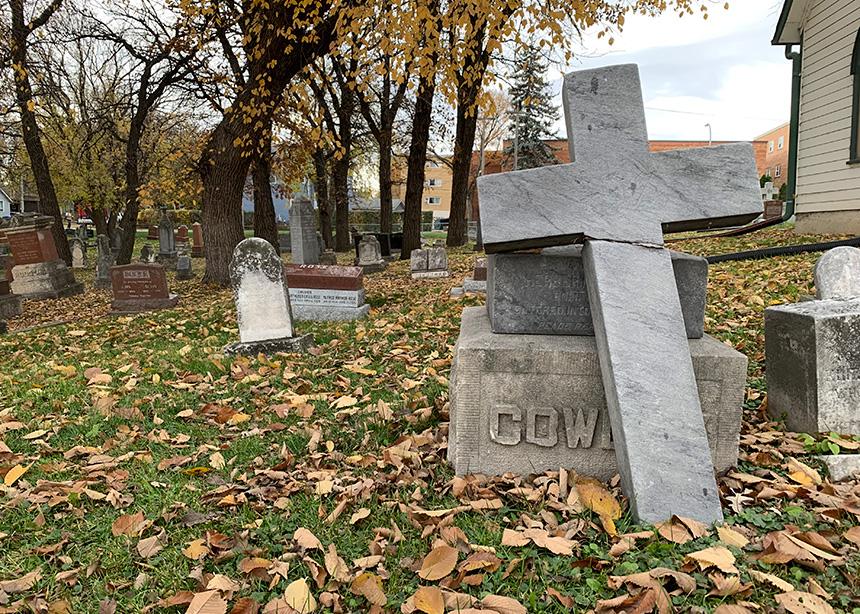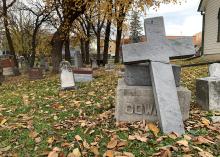The day before writing this marked three years since my sister died of cancer. We gathered as a family at her grave to mark the occasion. We talked about the day she died, things that remind us of her and how proud she would be of the two young boys who will always be her sons.
Many of us have these dates on our calendars and in our hearts. Some people’s calendars and hearts may be quite full of the dates on which loved ones departed.
As the years pass, commemorations tend to become more subdued, the memories more hidden, the grief more private. This is, in some sense, natural, as is the fact that while memory and grief change over time, the loved ones are never forgotten. Memory is powerful.
While elements of loss are hidden and private, collective recognition is of great value. There is something in us that needs to mark loss in the context of community, to hold it in the presence of others and of God.
The two-part feature in this issue touches on this holy task. In a piece called “As he lay dying,” Dora Dueck writes beautifully about the intimate, intense final stages of her husband’s life.
Anyone who has sought to make the final weeks together with a loved one as meaningful as possible—that period when overwhelming sorrow and overwhelming joy can mingle into one—and anyone who has sat at the bed of one who will never again communicate beyond a faint squeeze of a hand, will surely be touched by Dora’s warm and honest account.
Of course, sometimes death comes unexpectedly and immediately, creating a very different experience. In any case, death is as intense as it is common.
The second part of the feature is Aaron Epp’s piece on Eternity Sunday. Aaron contacted as many Mennonite Church Canada congregations as he could find email addresses for (167) and found that 81 of them take time during an annual service to commemorate loved ones who have died. Many call it Eternity Sunday and most mark it around this time of year. He writes about the different rituals used and the experiences of those involved.
At one of numerous funerals I have attended in Indigenous communities, a wise person said that each of us in attendance would take a tiny piece of the grieving family’s sorrow home with them, making the burden slightly more bearable for the family. In one sense, grief is profoundly private and, in another, it must be shared.
Death is often, though not always, associated with aging and we have two pieces that talk about that. Cathrin van Sintern-Dick talks about proactive mediation processes that can help families prevent conflicts that arise with aging, and 97-year-old Helmut Lemke discusses his own process of growing old and the adjustments required.
We also bring you more voices from the Middle East as we seek out those Palestinians who have ties to Canadian church folk. As one of the most intractable conflicts on the globe reaches new levels of seeming intractability, I am astounded at those people who rise above hate and enmity despite the venomous atmosphere around them. Thanks be to God.
Plus, a good dose of wisdom, direction and zip from Judith McCartney who is building youth leaders in Toronto, Shel Boese who is bringing new energy to Mennonite Church B.C., César García who is picking church apart from state and Kara Carter who is pointing us past the scuff marks on the fellowship hall floor.
For those interested in good stories, fresh ideas and the feel of a hearty book in your hands, see our fall list of books and resources.
Finally . . . from the tenderness of death to the liveliness of youth . . . tune in to our November 29 web event to hear what church looks like from the vantage point of young people who have answered the call to pastoral ministry.





Add new comment
Canadian Mennonite invites comments and encourages constructive discussion about our content. Actual full names (first and last) are required. Comments are moderated and may be edited. They will not appear online until approved and will be posted during business hours. Some comments may be reproduced in print.